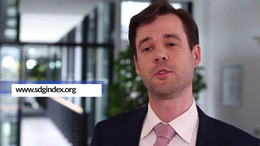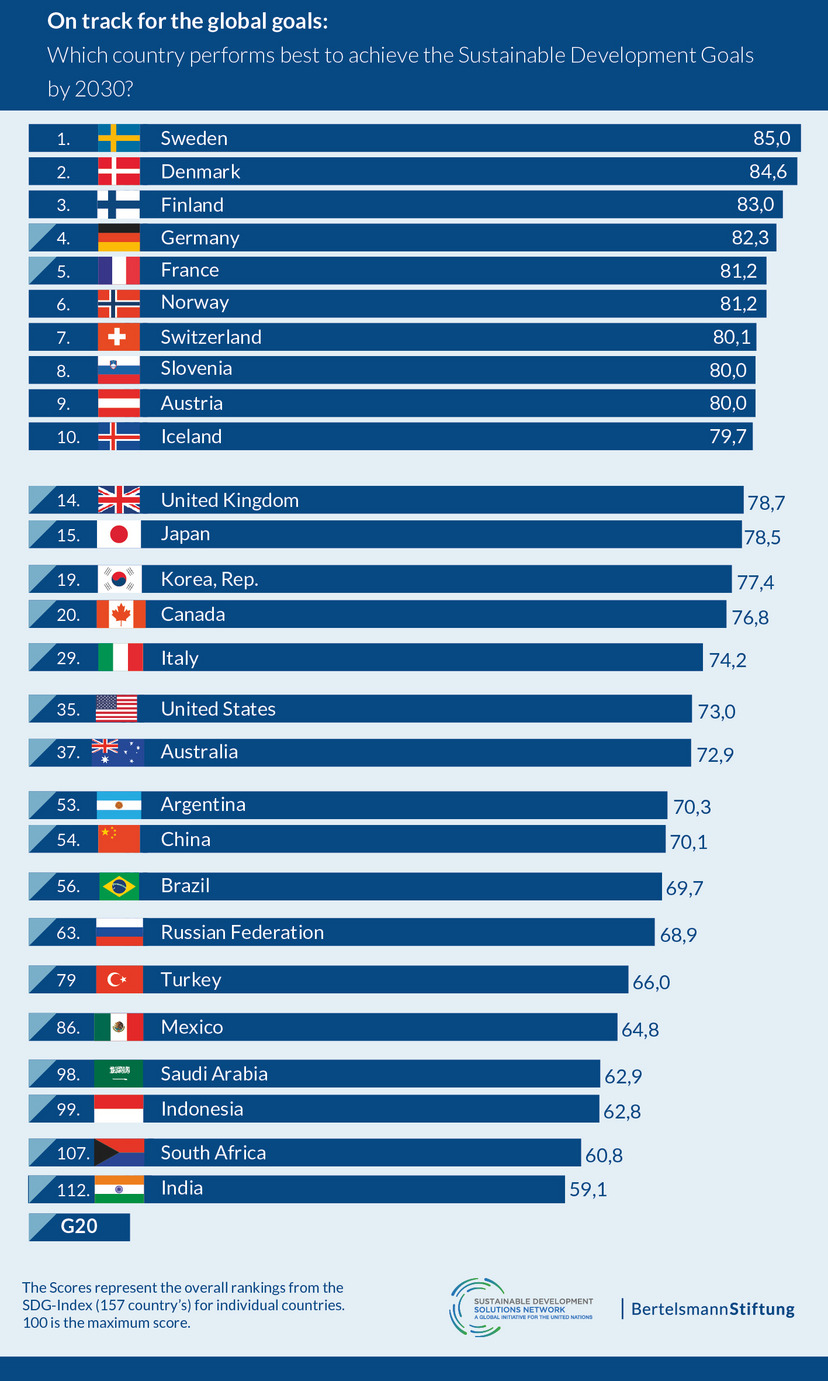Three years after the historic UN summit in New York, where all UN member states adopted the Sustainable Development Goals, the 2018 SDG Index and Dashboards Report illustrates, that world leaders need to strengthen their joint efforts to realize the global goals. According to report currently no country is completely on track to achieve all SDGs by 2030. The authors of the report urge the G20 leaders to set in place national coordination and implementation mechanisms, which are currently lacking in many places and prevent countries from fully achieving the global goals. Furthermore the report shows, that many of the richest countries deteriorate the implementation process for poorer countries as they are producing negative spillover effects, for example due to their lifestyle and consumption practices.
The 2018 edition of the SDG Report "Global Responsibilities – Implementing the Goals" is the third edition since 2016 of the annual stocktaking of SDG progress that we provide together with the Sustainable Development Solutions Network (SDSN). It comprises the SDG Index, a composite measure of progress across all goals.
![[Translate to English:] Eine Person hält einen alten Globus an die Hüfte gelehnt.](/fileadmin/files/_processed_/2/9/csm_746836522ben-white-148783-unsplash_57ed61383b.jpg)





